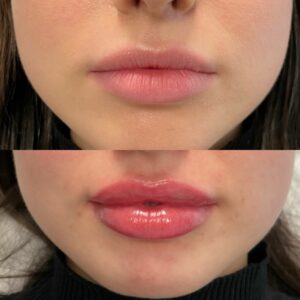Eggs have long been a staple in the human diet, providing a convenient and versatile source of nutrition. However, over the years, there has been much debate about the health effects of eggs, particularly regarding their cholesterol content. In this comprehensive guide, we will explore the scientific evidence and discuss whether whole eggs and egg yolks are bad for you or good.
Nutritional Profile of Eggs:
Eggs are highly nutritious and contain a wide array of essential nutrients. A large egg typically contains around 6 grams of high-quality protein, along with varying amounts of vitamins, minerals, and healthy fats. It is important to note that the majority of these nutrients are found in the yolk, while the egg white primarily consists of protein.
Cholesterol Content:
Eggs have been criticized for their cholesterol content, as the yolks are relatively high in cholesterol. However, it is essential to understand the distinction between dietary cholesterol and blood cholesterol. While dietary cholesterol was once believed to have a significant impact on blood cholesterol levels, recent research has shown that dietary cholesterol has a minimal effect on most individuals.
For the majority of healthy people, consuming dietary cholesterol, such as that found in eggs, has little impact on blood cholesterol levels. The liver produces cholesterol naturally, and when we consume dietary cholesterol, the liver compensates by producing less cholesterol. However, individuals with certain health conditions, such as familial hypercholesterolemia, may be more sensitive to dietary cholesterol and should moderate their intake.
Benefits of Whole Eggs:
Whole eggs offer a range of health benefits due to their nutrient composition. Here are some reasons why they can be considered good for you:
Nutrient Density: Whole eggs are rich in essential nutrients, including vitamins A, D, E, K, B vitamins, choline, selenium, and iodine. These nutrients play vital roles in various bodily functions, such as cell function, immune system support, and brain health.
Protein Content: Eggs are an excellent source of high-quality protein, containing all the essential amino acids the body needs. Protein is essential for muscle growth, tissue repair, and the production of enzymes and hormones.
Satiety and Weight Management: Including eggs in your meals can contribute to feelings of fullness and help control appetite. The high protein and fat content in eggs can promote satiety and reduce calorie intake, making them beneficial for weight management.
Eye Health: Eggs contain antioxidants such as lutein and zeaxanthin, which are beneficial for eye health. These antioxidants help protect against age-related macular degeneration and cataracts.
Brain Function: Choline, an essential nutrient found in eggs, plays a crucial role in brain development and function. It is particularly important during pregnancy and early childhood for proper brain development.
Considerations for Egg Yolk Consumption:
While egg yolks offer numerous health benefits, there are a few considerations to keep in mind:
Calorie and Fat Content: Egg yolks are higher in calories and fat compared to egg whites. If you are watching your calorie intake or following a low-fat diet, it may be necessary to moderate your consumption of egg yolks.
Allergies and Sensitivities: Egg allergies are relatively common, and the majority of allergic reactions are caused by egg whites. If you have an egg allergy or sensitivity, it is essential to avoid consuming both egg yolks and whites.
Individual Health Conditions: As mentioned earlier, individuals with certain health conditions, such as familial hypercholesterolemia or diabetes, may need to moderate their intake of dietary cholesterol, including egg yolks. It is best to consult with a healthcare professional or registered dietitian for personalized advice.
Cooking Methods:
The health impact of eggs can also be influenced by the cooking methods used. Boiling, poaching, or scrambling eggs with minimal oil are generally considered healthier options compared to frying, as they do not add unnecessary fat or calories.
Conclusion:
In conclusion, whole eggs and egg yolks can be part of a healthy diet for most people. They are nutrient-dense, provide high-quality protein, and offer various health benefits. The concerns regarding cholesterol content have been largely debunked, and moderate consumption of eggs is unlikely to have a significant impact on blood cholesterol levels for the majority of individuals. However, it is important to consider individual health conditions, allergies, and sensitivities when determining the appropriate amount of egg yolks to consume. As always, maintaining a balanced and varied diet, along with regular physical activity, is key to overall health and well-being.
- Benefits of HHC Products - August 12, 2023
- Are Whole Eggs and Egg Yolks Bad for You or Good - August 12, 2023
- Are Energy Drinks Good or Bad for You - August 12, 2023












![Vista Edge [Avocado]](https://acushnetvapor.com/wp-content/uploads/2023/10/Vista-Edge-Avocado-300x300.webp)




